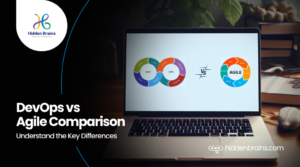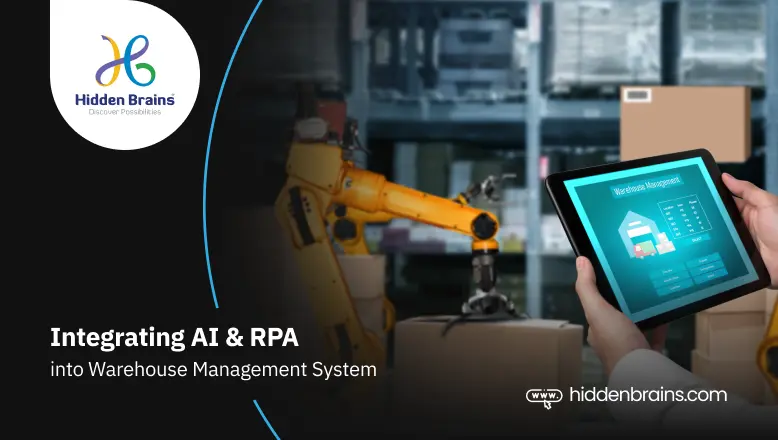Overview
DevOps or Agile – which drives better software success? Both boost delivery and collaboration, but in different ways. Agile focuses on flexible, iterative development, while DevOps bridges development and operations for faster, seamless deployments. Explore how understanding their strengths can help your team build high-quality software, faster and smarter.
DevOps and Agile differences can be explained as the pivotal methodologies for ensuring software quality. Large enterprises must understand the fact that continuous improvement is essential for delivering a software product according to the client’s requirements.
The fact that the DevOps market is expected to be worth USD 45 Billion by 2032 compels the project stakeholders to utilize it. On the contrary, Agile methodology is used by 86% of companies across the globe. Thus, the combination of Agile DevOps has to be understood and properly implemented by the enterprises.
The link above is for enterprises and project stakeholders to learn about DevOps and Agile methodologies. Though Agile and DevOps have a similar purpose there are fewer differences. This blog will detail the specifics of the comparison. Before that, check out the video that we have shared here. This link provides information on the points that subject the differentiation in the right manner.
However, further reading the blog will guide you on which methodology to select for the next project. Else, if both of these are required then what are the best practices that need to be followed?
DevOps is used to ensure that there are no errors in the application and Agile is used to make continuous iterations as per the user’s feedback.

Boost Scalability and Gain Better Visibility
Choose Our Cloud & DevOps Development Services.The top facts to know about both of these methodologies are shared here:
Companies that hire dedicated developers should emphasize the candidate’s knowledge regarding DevOps and Agile processes. Both are the production part but Agile is to build quality products whereas DevOps is to test them.
There is a timeline difference for example, due to multiple sprints product development exceeds months whereas, in DevOps, the software is tested faster. An interactive approach is used in Agile whereas a collaborative approach is used in DevOps to test the software according to needs.
Also Read: The Complete Guide for DevOps Implementation
Large enterprises must understand the problem statement that efficiency is the basic requirement when it comes to building software. It is simply not to outline the preliminary requirements and begin with development.
The System Development Life Cycle is used to work with planning while utilizing the necessary programming languages & frameworks, testing, deployment, and creating technical documentation. Moreover, the reason to share the comparison is to share knowledge with the project stakeholders.

Unsure Which Methodology Fits Your Web Project?
Get Expert Web Application Development Services.Core Differences Between Agile and DevOps
Software development and testing are the two important differences between Agile and DevOps. In short, both are effective software development practices that must be followed by all enterprises. This section is to share the knowledge among the enterprise stakeholders for differences between Agile and DevOps.

The above table shares the crucial differences, however, a detailed description is shared below:
| Particulars | DevOps Methodology | Agile Methodology |
| Purpose | The ultimate goal of DevOps is to deliver improved software. This term means that the application is free from anomalies before being deployed. The DevOps techniques are being used but this time it will be a CAGR of around 20% by 2028. This market data shares the fact that companies should implement DevOps methodologies to ensure timely software delivery. Now, the time is gradually upgrading and thus, enterprises are moving to implement automation. | Focuses on developing software with quality by following some of the key concepts that are collaboration, efficiency, simplicity, and adaptability. These phenomena allow the developers to create a software product that is supreme in quality and is developed according to the specific needs of the users. |
| Approach | Testing in DevOps is not an individual task but a collaborative approach that is used to ensure that there is no bug in the application. The issues are collectively solved to meet the project timelines. | An iterative approach is used wherein the team members work according to their individual responsibilities. This is the core feature of the Agile methodology that primarily focuses on maintaining the software quality. |
| Practices Used | Continuous Integration, Continuous Delivery, and Infrastructure as Code are some of the practices that are used. Large enterprises can ask the DevOps Solutions & Services Company for the practices that they are using to complete a particular project for their knowledge. | Frameworks like Scrum, Kanban, and XP are used to complete the tasks. |
| Tools Used | DevOps is implemented by using certain tools such as Jenkins, GitLab CI, Prometheus, or Grafana. | Agile teams make use of various project management tools Jira, Trello, or more that are suitable according to the project. These help in streamlining the whole software development process. |
| Culture Followed | Whenever DevOps methodology is used it emphasizes the collaboration between development and operations, with a focus on efficiency and reliability for a software application. | The primary reason that enterprises must choose agile methodology is because it emphasizes collaboration, flexibility, and customer involvement to build quality-assured software. |
The above 5 crucial differences suggest that the methodologies have a common goal. Thus, enterprises have to utilize both for effective Web or Mobile application development. The Enterprises can also choose Cloud – DevOps Development Services for ensuring the quality.
The Agile and DevOps teams work hand in hand. The changes that are required are forwarded to the Agile teams for correction, The software is again tested up until the final software product gets ready to deploy.
Also Read: Cloud, Big Data and DevOps in the Enterprise
What are the Best Practices of Agile and DevOps?
The enterprise wonders and the project stakeholders have to be aware of the best practices that are followed while implementing each of the methodologies. We have discussed these here for reference.
Best Practices of Agile
Effectiveness and efficiency are the two vital terms that are fulfilled by Agile methodology. Check out the best options for the approach below:
Ultimate Customer Satisfaction
The main concern for the Agile development teams is to include the parameters that are provided by the client. Enterprises can hire dedicated developers who can manage the requirements without missing out on any one of them.
Smooth Communication
While developing software, the primary concern is to pay attention to verbal and nonverbal communication. Both of these aspects are helpful in reaching deadlines faster. The various SDLC Teams have to work together to gain a common goal. Support, coordination, and balance among the Agile teams is essential.
Regular Sprints
The feature for which Agile is best known is the continuous iterations. This is one of the most important best practices that is used by project managers.
Agile in simple terms is a way to build software with the complete mind map of the client. There is no scope to miss out on any requirements else the enterprises might face a challenge for customer satisfaction.
Also Read: How Enterprises can Transition to DevOps?
Best Practices of DevOps
Automation is a critical part of DevOps methodology but there are more practices that are followed which are discussed below:
Continuous Integration and Continuous Delivery (CI/CD)
Unit testing stages are completed with automation to determine the anomalies. These are then corrected and the software is again deployed.
Regular Monitoring
This best practice is helpful for the DevOps team to ensure that the application is bug-free. Also, unnecessary delays are resolved by conducting regular monitoring.
Working on Client Feedback
Generally, it happens that the project is completed and deployed but the client satisfaction is not achieved. In that case, the DevOps engineers have to start working on the client’s feedback. They need to coordinate with the Agile teams to ensure that the software is amended properly.
These were some of the best practices that the engineers had to complete. From developing the software to testing and deploying it. Hopefully, this information has helped you to understand the concepts of DevOps methodology vs Agile. However, Agile DevOps is a better collaboration for large businesses that are seeking growth. In the future, it is essential to gain a competitive advantage.
Companies that want to take IoT Application Development Services from businesses like ours then they can simply share their queries via email. Our professionals will respond to you within no time.

Struggling to Sync Your Development and Operations Teams?
Leverage Expert DevOps Services!How Hidden Brains Can Help You Choose Between DevOps and Agile?
The decision to outsource developers or the project can be made once the methodology is cleared to use. Hopefully, the blog has provided a direction to you in implementing one of the methodologies. Have a doubt? Connect to us at biz@hiddenbrains.com. Enterprises can rely on Hidden Brains for outsourcing their projects. Our professionals have been in this industry for relevant years and are experienced in providing supreme consultancy along with effective software development.
Frequently Asked Questions
A detailed discussion of the key differences might be not enough. This is the reason we have shared fewer FAQs here.
How do Agile and DevOps Complement Each Other?
In modern software development, Agile and DevOps are used together to ensure software quality and rapid testing. CI/CD method is DevOps and continuous iterations in Agile promote successful software development.
Can DevOps be implemented without Agile practices?
Surely, DevOps can be implemented when there is no requirement to build a sprint. The DevOps engineers can simply test the software and share the report with the development team to make the changes. However, DevOps principles work greatly with Agile. The development team is capable of completing the project within the timelines with less or no errors.
How Does Agile Address Project Management Compared to DevOps?
Project management in Agile comprises a framework that helps to maintain code consistency, integration of interactive elements, and iterative sprints. Whereas DevOps is associated with a software delivery pipeline. The engineers have to make sure that the application is running smoothly without any errors.
DevOps Methodology vs Agile: How do these Handle Team Collaboration Differently?
The project stakeholders must look into the concepts of the practices that are used under both categories. There is a difference when it comes to team handling because Agile methodology requires the teams to work closely to understand the amendments. In contrast, the DevOps team works faster to check the software during the entire software development life cycle.
How do Agile and DevOps Measure Success?
Enterprises can achieve guaranteed success when they understand DevOps vs Agile methodologies and implement these together. Both methodologies need to work in collaboration but there are discrete success parameters. The success of Agile is measured with sprint goals and customer satisfaction whereas DevOps measures success through software deployment frequency and mean time to recovery.
Conclusion
Modern software development is complemented by Agile and DevOps methodologies. The project stakeholders must focus on iterating the software with the necessary changes and utilize the software development lifecycle thoroughly. There comes the role of DevOps when the application is ready from Agile development. The efficiency feature is included in the applications. The deployment is done after the bugs are cleared after performing the testing. However, this blog has concluded both the methodologies are effective for the large enterprises to meet project requirements.































































































![Sales & Distribution [Oil & Gas] Sales & Distribution [Oil & Gas]](https://www.hiddenbrains.com/blog/wp-content/themes/blankslate/assets/images/sales_and_distribution-icon.74d08193.svg)

![Fluid Terminal Management [Oil & Gas] Fluid Terminal Management [Oil & Gas]](https://www.hiddenbrains.com/blog/wp-content/themes/blankslate/assets/images/fluid_terminal_management-icon.4b3a27a4.svg)































![Sales & Distribution [Oil & Gas] Sales & Distribution [Oil & Gas]](https://www.hiddenbrains.com/blog/wp-content/themes/blankslate/assets/images/sales_and_distribution-icon.74d08193.svg?1.0.0)
![Fluid Terminal Management [Oil & Gas] Fluid Terminal Management [Oil & Gas]](https://www.hiddenbrains.com/blog/wp-content/themes/blankslate/assets/images/fluid_terminal_management-icon.4b3a27a4.svg?1.0.0)
























































































































































































